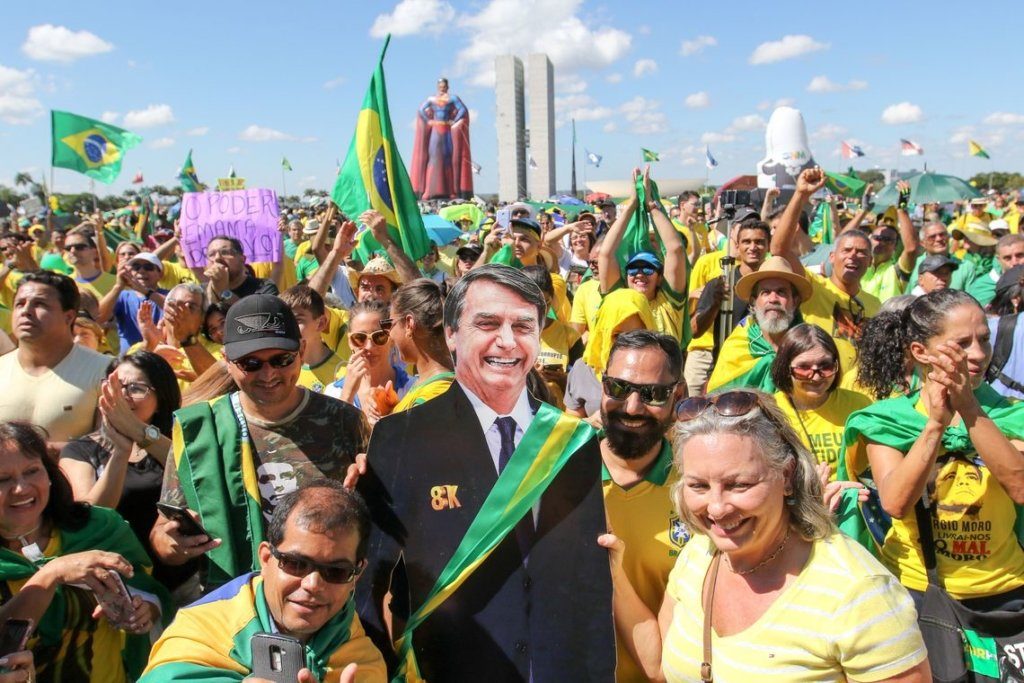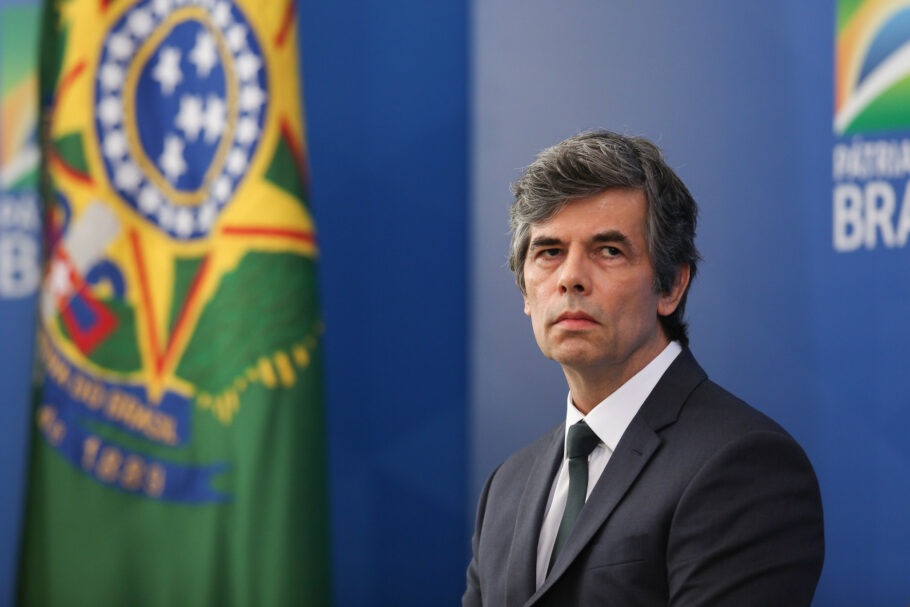RIO DE JANEIRO, BRAZIL – In the midst of a political crisis forged by President Jair Bolsonaro, who this weekend took part in a protest calling for the closure of Congress and the Supreme Court and advocating military intervention, Brazil seems to be wandering in the dark in regard to the actual advance of coronavirus cases and deaths.

On Monday afternoon, April 20th, the Ministry of Health released a report confirming 383 new deaths by Covid-19 in 24 hours, but about an hour later corrected the figures and assured that 113 new deaths were recorded in the period. The reason given for the mistake was a typing error.
On the table with the daily balance, the portfolio initially stated that the State of São Paulo totaled 1,307 deaths, but the correct figure was 1,037. Thus, the balance was corrected from 2,845 deaths (seven percent mortality rate) to 2,575 (6.3 percent). The total number of new confirmed cases was 40,581, that is, 1,927 more than the preceding day.
Since the Government changed the command of the Ministry of Health, on Thursday last week, the data on the advance of Covid-19 are updated with no press conference with the portfolio’s technical team, a practice that was common during the management of Luiz Henrique Mandetta.
In these interviews, the daily report on the crisis was supported by announcements on the Federal Executive’s decisions to curb the pandemic in Brazil, in addition to clarifications on the growth curve of cases, the SUS constraints, the progress or delay in relation to the Government’s challenges in the face of the crisis, in addition to answers to journalists’ questions.
The absence of technical clarifications hampers understanding the behavior of the virus in Brazil, such as whether the increase in cases is due to the increased testing or the drop in compliance with social isolation, for instance.
The new Minister, Nelson Teich, who took office on April 16th, advocated transparency in the Ministry’s activities when sworn in, but has not yet made it clear whether he will continue with the routine of technical clarifications. On Saturday, without an official agenda, Teich traveled to Rio de Janeiro (where he lives).
On Monday afternoon, although the commitment was not included in the Minister’s agenda, he met with President Bolsonaro at the Planalto Palace. On Monday, the only senior government official to attend the daily press conference was the Minister of Citizenship, Onyx Lorenzoni, to address the payment of basic emergency income.
Teich, on the other hand, confined himself to releasing a video of just over three minutes in which he reported that the government was acquiring coronavirus tests, which would be increased from 24 to 46 million kits. The goal, explained Teich, was to carry out mass population testing, as South Korea did, to “understand the disease and its development,” and thus “to plan for a review of social distancing”.
On Monday, the Minister also attended a meeting at the Planalto Palace, out of his official agenda, and has yet to appoint people for his team – the President even said he would also be nominating staff.

Political tension
The relaxation of social distancing measures decreed by States and Municipalities is one of Bolsonaro’s obsessions. There was an escalation of political tension in the country last weekend when a significant number of Bolsonarists joined in protests and honking motorcades in cities such as Brasília, São Paulo, and Rio de Janeiro.
In addition to calls for the reopening of businesses and the return to economic activity, many protesters called for the removal of the governor of São Paulo, João Doria, and the Chamber president, Rodrigo Maia, in addition to military intervention or a new AI-5 – a 1968 dictatorship decree that allowed the closure of Congress and the suspension of citizens’ political rights.
On Sunday, Bolsonaro headed to the army headquarters in Brasília, approached demonstrators -without a mask and coughing, as footage shows- and delivered an inflammatory confrontational speech against the other powers of the Republic. “We don’t want to negotiate anything. We want action for Brazil,” the President said, under applause.
On Monday, the Prosecutor General, Augusto Aras, appointed by Bolsonaro to the post, urged the Federal Supreme Court (STF) to launch an inquiry to investigate Sunday’s demonstrations. Aras seeks to determine whether there was a violation of the National Security Law because of “acts against the regime of Brazilian democracy by several citizens, including federal deputies, which justifies the jurisdiction of the STF”.
The protests were also rejected by individual STF Justices, and by other officials. The President backed down on Monday: on leaving the Alvorada Palace, when addressing journalists, he said he was not in favor of an AI-5 or the closure of Congress. “People usually conspire to seize power. I am already in power. I am already the President of the Republic,” he said. Then he added, “I am, in fact, the Constitution”.
At another time, he once again downplayed the coronavirus pandemic in Brazil, as well as the deaths that are occurring: “Approximately 70 percent of the population will be infected. There is no point in wanting to run from that. It is the truth. Are you afraid of the truth?”, he said. “They’ve taken fear to the public, hysteria. And it’s not true. We can see it’s not true. We mourn the deaths, and that’s life. We all die,” he added.
And he added, “That’s a fact, the virus is there. We’re going to have to face it, but face it like a man, damn it. Not as a kid. Let’s face the virus with reality. That’s life. We’re all going to die someday.”
Source: El País

